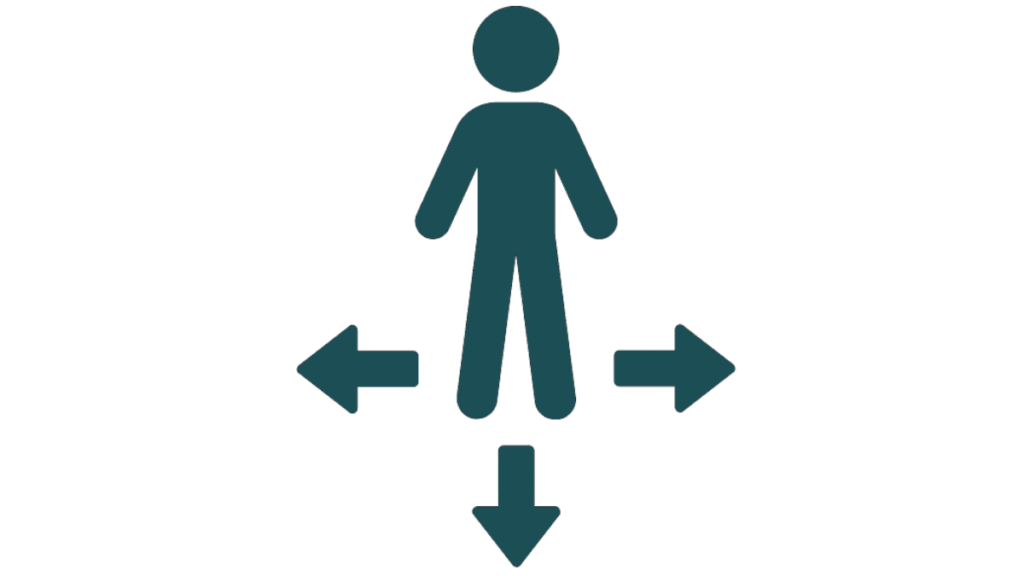The War on Your Senses
Your eyes burn by the end of the day. Your ears ring in the quiet. Your skin? Numb to the world beyond your devices.
We live in a digital haze—hyper-connected yet sensory-starved. Modern men face an unseen war: a war on their instincts, presence, and raw connection to the physical world.
What if reclaiming your power, presence, and primal intelligence wasn’t about adding more—but cutting back?
Digital fasting is that path. It’s a tactical retreat from screens and noise to reboot the body’s hardware: your senses.
Let’s explore the art of digital fasting, the science of sensory reclamation, and 7 powerful tactics men can use to awaken their dormant instincts.
Table of Contents
The Masculine Crisis of Sensory Overload
Every day, men are bombarded by artificial light, endless scrolling, blaring noise, and synthetic environments.
The result?
- Dull senses
- Shortened attention span
- Weak emotional regulation
- Poor physical presence
We’re becoming disembodied men: minds detached from the primal intelligence of the body. This is no accident—it’s a modern malaise designed by convenience, media, and tech.
Sensory reclamation is the antidote. It’s the deliberate process of regaining your natural edge by abstaining from digital toxins.
What is Digital Fasting?
Digital fasting is a planned, temporary abstinence from all digital devices—phones, laptops, TVs, tablets, and social media.
It’s not just a detox—it’s a ritual of reset.
Much like intermittent fasting for the body, digital fasting allows the brain and nervous system to repair from the constant dopamine spikes and sensory overload caused by screens.
Research shows that screen time overstimulates the brain’s reward system, exhausting attention reserves and increasing anxiety.
A digital fast gives your mind the chance to:
- Reset dopamine sensitivity
- Reduce stress hormones
- Revive natural curiosity and presence
But it’s not just about the mind—it’s about the body and senses.
7 Powerful Ways to Reclaim the Senses Through Tech Abstinence
1. 72-Hour Screen Fasts
The first rule of digital fasting: disconnect completely for 72 hours.
No screens. No texts. No scrolling.
In those three days, your brain’s visual cortex begins recalibrating. Your focus deepens, and eye strain diminishes.
Tip:
Go somewhere remote—a cabin, a rural village, or simply lock away your devices. Replace screen time with books, nature, and manual tasks.
2. Silence Retreats
Our ears are bombarded with noise pollution—traffic, music, notifications. Silence is now rare.
By engaging in a silence retreat—even for a day—you reset your auditory system.
Silence enhances your ability to hear subtler sounds, recalibrates your nervous system, and fosters deep introspection.
Even a day of silence sharpens auditory perception and deepens emotional intelligence.
3. Barefoot Walking
Your feet have over 200,000 nerve endings. Yet, shoes and artificial floors have made us numb from the ground up.
Barefoot walking, especially on natural surfaces like grass, dirt, or sand, reconnects you with the Earth.

This practice, known as grounding, restores:
- Proprioception (your body’s spatial awareness)

- Balance and coordination
- Nerve sensitivity
Take 30 minutes each morning to walk barefoot in nature. Feel the textures. Reclaim your connection to the earth beneath you.
4. Forest Bathing (Shinrin-Yoku)
A Japanese practice, forest bathing is the act of immersing yourself in a forest with full sensory engagement—sight, sound, smell, and touch.

Trees emit phytoncides, which boost your immune system and reduce stress.
A tech-free day in the forest helps your eyes adjust to natural depth and color contrast, enhancing visual accuracy and reducing screen-induced myopia.
Leave the headphones and phones behind. Walk slowly. Listen. Smell the air.
5. Cold Water Immersion
Plunging into cold water shocks the body—but in a good way.
Cold exposure reawakens your skin’s nerve receptors, which have dulled under constant climate control and screen exposure.
Benefits include:
- Improved nerve conductivity
- Enhanced circulation
- Boosted resilience
Start with cold showers. Level up with river swims, ice baths, or cold plunges. Each shock reboots your body’s alertness and tactile sensitivity.
6. Intentional Eye Training
Screens force your eyes into a constant short-range focus, promoting nearsightedness and weakening long-distance vision.
Train your eyes by:
- Practicing sun gazing (safely during sunrise or sunset)

- Long-distance focusing: stare at far-off landscapes or skyline
- Eye yoga exercises
This restores visual range, focus flexibility, and reduces fatigue. It’s visual weightlifting for the modern man.
7. Mindful Eating (Device-Free Meals)
Reclaim your sense of taste and smell by practicing mindful eating.
Put away your phone. Eat slowly. Chew longer. Smell each bite.
This re-engages the senses dulled by multitasking and fast food consumption. Your palate sharpens, and your digestive system functions better.
Food becomes not just fuel—but an experience.
The Masculine Benefits of Sensory Reclamation
Men who reclaim their senses through digital fasting experience:
- Heightened situational awareness: Like a trained soldier, your environment becomes clearer.
- Sharper instincts: Gut feelings return. Decision-making improves.
- Improved emotional regulation: Less anxiety, more calm.
- Stronger presence: Women, peers, and competitors feel your grounded energy.
- Deeper sleep: Without screen stimulation, melatonin production stabilizes.
- Enhanced creativity: A rested mind and reawakened senses foster creative breakthroughs.
This is not just a detox. It’s a masculine reset.
Common Challenges & How to Overcome Them
- Boredom: Replace screen time with physical tasks—woodworking, cooking, reading.
- Withdrawal: Expect irritability. Counter it with meditation, journaling, or nature walks.
- FOMO: Remind yourself—nothing online is more urgent than reclaiming your power.
Prepare for these roadblocks. They’re signs your nervous system is rewiring.
How to Plan Your First Digital Fast
- Set a Date: Block out 72 hours where work and obligations are minimal.
- Notify Contacts: Let family or colleagues know you’ll be unreachable.
- Choose a Setting: A forest, beach, or rural space with minimal tech temptations.
- Prepare Activities: Bring books, analog tools, musical instruments, or fitness gear.
- Journal the Process: Record sensory experiences, emotions, and breakthroughs.
- Reintegrate Slowly: Don’t binge on screens right after. Ease back with boundaries.
FAQ: Sensory Reclamation & Tech Abstinence
- What is sensory reclamation?
It’s the process of reawakening the senses—sight, hearing, touch, smell, and taste—diminished by constant screen exposure and synthetic environments. - How does tech abstinence improve mental clarity?
By reducing digital noise and overstimulation, your brain resets, leading to improved focus, sharper memory, and better decision-making. - What happens to the brain during a tech-free break?
Neural pathways related to attention and reward get a reset, reducing the need for constant dopamine hits from devices. - How long should I unplug to feel benefits?
Even 24 hours can help, but 72 hours provides deeper nervous system recovery and sensory awakening. - What is the benefit of practicing silence?
Silence helps recalibrate hearing, fosters mindfulness, and reduces stress by allowing the auditory system to rest. - Why is walking barefoot effective?
It activates nerve endings in the feet, improves balance, enhances body awareness, and reconnects you with natural rhythms. - What is forest bathing and how does it help?
It’s the practice of immersing oneself in a forest environment to re-engage all senses, lower stress hormones, and boost immunity. - Can cold exposure sharpen my senses?
Yes, it stimulates nerve receptors, improves circulation, and increases resilience both physically and mentally. - What are practical eye training techniques?
Sun gazing (during safe periods), focusing on distant objects, and practicing eye mobility exercises can restore visual flexibility. - Why is mindful eating important for sensory recovery?
It enhances taste and smell sensitivity, promotes better digestion, and encourages a deeper connection to your body’s signals. - What signs indicate my senses are becoming sharper?
You’ll notice improved night vision, clearer hearing, more vivid tastes, heightened smell, and greater skin sensitivity. - How can tech abstinence improve my relationships?
Without digital distractions, you become more present, attentive, and emotionally connected to people around you. - What role does nature play in restoring the senses?
Natural settings provide diverse sensory stimuli—textures, scents, sounds—that can’t be replicated by screens. - Are there any risks with cold water immersion?
Start gradually, especially if you have heart conditions. Cold exposure should be brief and controlled. - How do I handle boredom during a tech break?
Plan physical activities, read physical books, cook, hike, or practice journaling to engage your mind and body. - Can unplugging improve sleep quality?
Yes, stepping away from screens—especially at night—improves melatonin production, leading to deeper and more restful sleep. - What is grounding, and why is it useful?
Grounding involves direct contact with natural surfaces like earth, grass, or sand, which helps reduce inflammation and restore bodily awareness. - How does this practice impact masculinity?
Reawakening the senses enhances primal instincts, presence, and confidence—core aspects of traditional masculine energy. - Can this enhance athletic or physical performance?
Absolutely—better proprioception, balance, and sensory awareness translate into improved coordination and physical capability. - How often should I unplug from devices?
A full reset once a month is beneficial, but weekly tech-free days or evenings can help maintain sensory health. - What’s the connection between senses and creativity?
Sharper senses feed the brain with richer inputs, boosting imagination, problem-solving, and creative output. - Is there a spiritual element to sensory recovery?
Many find that reconnecting with the body and nature fosters deeper mindfulness, inner peace, and even spiritual clarity. - What if my work requires constant device use?
Implement daily tech-free hours, regular nature exposure, and intentional sensory practices to counterbalance digital demands. - What changes should I expect after multiple tech breaks?
You’ll likely feel calmer, more focused, physically grounded, and more attuned to your environment. - How can I make sensory reclamation a long-term habit?
Schedule regular unplugged time, integrate nature walks, mindful eating, and body-based practices into your weekly routine.
Your Senses Are Your Superpower
In a world where men are disconnected from their primal senses, digital fasting is a rebellious act of reclamation.
Reclaiming your eyes, ears, skin, and gut instincts isn’t optional—it’s essential for any man who wants to navigate life with clarity, strength, and presence.
Commit to a 72-hour digital fast this month. Disconnect from the synthetic. Reconnect with the real.
Go silent. Go barefoot. Go primal. Return sharper, calmer, and more alive.
Your senses are waiting. Are you? Subscribe to MindGearMen



Adult Spelling Bees? Adult spelling bees are just bars with shame.